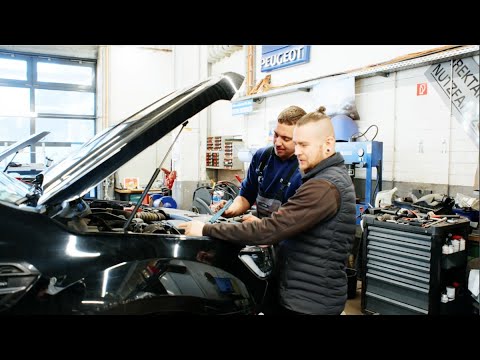Problem addressed
Students with autism spectrum disorders (ASD), including Asperger's Syndrome, are increasingly common in universities. Higher education institutions can pose new and challenging environments for ASD students, who may find it difficult to fit into the traditional university system and adhere to unwritten rules.
Such students often have exceptional strengths in specific areas but struggle with social interactions and adapting to university life: understanding social norms, feeling different from peers, experiencing social anxiety, difficulty in engaging in conversations and collaboration, and reacting strongly to unexpected changes.
These challenges, coupled with their unique strengths and deficits, can surprise academic staff and peers, leading to less-than-positive outcomes for students with autism traits. Without proper support, students with ASD may feel socially excluded and forced to resignation, despite their intellectual potential.
Recognizing these difficulties, the "Assistant for a Student with ASD" social innovation was developed to provide direct communication support for ASD students in higher education. Trusted individuals, known as Assistants or Social Advocates, help students effectively communicate with university staff, ensuring their needs are met and enhancing their educational experience.
Innovative solution
The implemented project is a significant social innovation for various reasons. Initially, most higher education institutions lacked systematic support for individuals on the autism spectrum (ASD). Often, authorities and university staff were unaware of their presence, neglecting their specific educational needs. The "Assistant for a Student with ASD" initiative addresses this gap by providing a platform for ASD students to express their challenges and needs openly.
Autistic students in full-time or part-time undergraduate, master's, and doctoral programs are the primary beneficiaries of assistant support. In most participating universities, the Leader-Assistant role was fulfilled by full-time employees, including academic teachers, Support Office for Persons with Disabilities staff, psychological counseling center or career office staff, and administrative personnel.
Many universities involved in the project exceeded expectations in supporting students with ASD, even going beyond the scope of the project. This innovation benefits university staff and lecturers who interact with ASD students, offering training workshops and opportunities for Assistant development.
Originally, the solution was developed by the FURIA Active Foundation as a micro-innovation in one of the Polish incubators for social innovations dedicated to accessibility (see also: case study on incubators on social innovations in Poland, ID: SIM1474) and it was tested in one university. The project for scaling the "Assistant for a Student with ASD" innovation provided an opportunity to test its implementation on a larger scale in 24 higher education institutions throughout Poland. The initiative included diagnosing institutional needs, offering expert consultations, training Assistant candidates, providing legal advice for implementing changes, and assisting in integrating new solutions into university structures. Additionally, multimedia materials were provided to increase awareness of ASD student needs.
Key components of this social innovation include:
- Implementation of the "Assistant for a Student with ASD" model within higher education institutions, expanded to establish a network of Assistants/Social Advocates. These individuals, designated by the University from among the academic/administrative staff or students/graduates of the university, undergo training to effectively support students with ASD. The training is continiued to expand the network of Assistants.
- Training and consultation sessions with neurodiversity experts to equip academic lecturers, administrative staff, former graduates, or other students with the skills necessary to serve as Assistants for students with ASD.
- Sharing the experiences of Assistants with other support personnel and disseminating knowledge within the academic community (faculty, staff, and students) to increase understanding of autism-related issues and raise awareness about the needs of neurodivergent individuals.
Through the implementation of these strategies, the innovation aims to foster a more inclusive and supportive environment for neurodivergent students in higher education. It ensures equal opportunities for individuals with ASD, including those with disabilities, to engage in academic life and receive assistance with academic-related challenges. Additionally, it aids in preparing students with ASD to navigate professional settings and assists them in developing social competencies.
Key results and benefits
- The "Assistant for a Student with ASD" social innovation has been implemented in 24 higher education institutions across Poland, both public and private.
- 79 students and doctoral candidates received direct support through the initiative.
- 42 members of the academic community, including lecturers and staff from Support Offices for Persons with Disabilities, were trained to serve as student assistants for individuals with ASD.
- A comprehensive project report has been developed, offering best practices for higher education institutions interested in adopting the "Assistant for a Student with ASD" innovation.
- Multimedia materials have been produced to spread awareness about the needs of students with ASD.
Potential for mainstreaming
The project promotes a pro-social attitude among students and staff and offers adaptable solutions, including temporary support for health issues. Actions like developing coping strategies, hosting integrative workshops, and training academic staff benefit students with autism and other groups facing challenges.
The assistant support model for students with ASD is adaptable to any university (so far implemented only at universities in Poland). However, it's important to recognize that each university's unique characteristics require different approaches to implementing the "Assistant for a Student with ASD". The handbook of practices, developed as part of the project, highlights this diversity and provides guidance on how to approach the application of this solution. The project also created resources like multimedia materials to educate about the needs of neurodivergent students. These resources are available on the project's website for institutions to implement the "Assistant for a Student with ASD" social innovation in their structures. Visit https://www.inkubatorwielkichjutra.pl/asd/ for more information (currently in Polish only).




